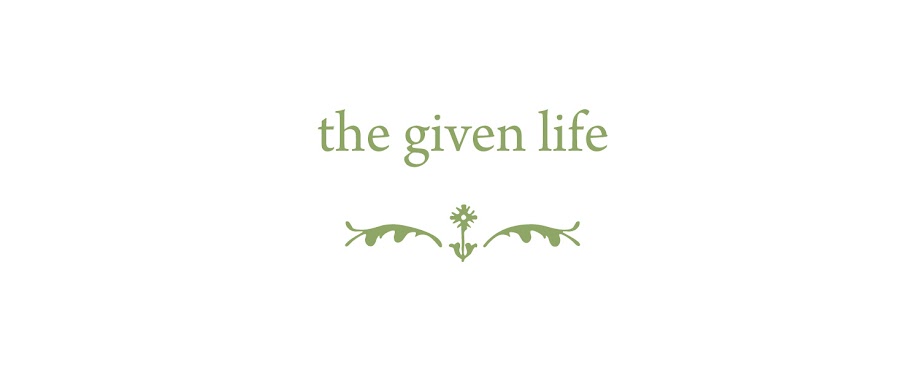Edie at Life in Grace recently wrote about "
Where mundane touches sacred," inviting us to appreciate the "sacred work" of the mundane. Such encouraging words for all of us as we go about the daily drudgery of the many things to which we have been called. I emailed her with a question that she very graciously added to the end of her post. I'd like to expand on a bit on my thoughts here.
This is my email:
Edie,
Your post today was beautiful, well-written, and brought a tear to my eye. And it touched on some things I’ve been mulling over lately. I’ve been thinking about this idea of all things being sacred–of finding the spiritual in the mundane things. I’d love to know what you think, since I think we approach our understanding of Christianity and the church from similar perspectives.
I’m wondering about the conflating of sacred and secular, or of sacred and all of life. I’ve read others writing similar (encouraging!) things. I certainly appreciate and recognize the reality that God works in all of our life–through the mundane and the routine and the little things. But I wonder if that is the same as a thing being sacred? I wonder if our sacramentalizing all of life actually may cause us to care less about, to lose our wonder at the true sacraments ordained by Christ and the special grace of which they are a means. Maybe it is just a matter of semantics and I’m thinking too much about this. Maybe it’s just because I was an English teacher and I get really interested in the words we use and how the usage changes, but maybe the usage does affect the way we think and then finally what we believe.
Just my two cents, for what it’s worth. I love your thought-provoking writing, Edie. No need to respond unless you want to.
Love to you,
Laura
the given life

I agree with so much of what Edie wrote ~
the significance of the
small, everyday things,
that our work, no matter how mundane, is truly vocation ~
that is,
divine calling!
In fact, I think that we have lost the meaning of the word
vocation, or allowed our understanding of it to shrink to include only special professions, especially those related to ministry, and to exclude those things that are unglamorous, menial, or temporary.
I stand with those who would broaden
our understanding of vocation,
elevating our little things
~ like laundry and diapers, paperwork and planting ~
giving them standing as worthy work,
part of our divine calling as humans
made in the image of God.

T. David Gordon writes, "Human life is never 'on hold'; it does not begin when we find 'the right job' or the ideal job. It begins when we imitate God; and if we labor productively in his created order . . . , we are doing what we were created to do."
We can find deep fulfillment and satisfaction in knowing that God worked for six days
creating the material world, the ordinary things and the small things,
and he proclaimed that it was "good."
By working in this ordinary, physical, world
(cleaning, feeding, tucking little ones into bed)
we are participating in God-ordained tasks;
this everyday work "is essential to our very nature and dignity as human beings."
We can find significance in the small things,
and "in whatever [we] do, work heartily, as for the Lord and not for men,
knowing that from the Lord you will receive the inheritance as your reward.
You are serving the Lord Christ"
(Col. 3:23-24).
By recovering a large and full understanding of vocation, we can avoid losing the special meanings held by the words "sacred" and "sacrament." The Westminster and Heidelberg catechisms both ask the questions "What is a sacrament?" and "How many sacraments has Christ instituted in the New Covenant?" And they answer, in my summarized paraphrase, that a sacrament is a holy, visible, sign and seal, which mediates grace to the believer by more fully declaring and sealing to us the promise of the gospel. And that there are only two sacraments, namely baptism and the Lord's supper.
I want to enter into my menial workaday life
with passion and meaning.
But I also want to regard the means of grace that Christ instituted
as holy and unique.
I think I can do both.
But the words I choose matter, they designate categories.
All things do not need to be set apart in order to be significant.
If all things are set apart, then nothing is set apart.
But God, by the act of creation and by creating us in his image
has made all things good, and made our lawful work noble and dignified.
So, we can find deep satisfaction in our menial tasks,
while also reserving the words "holy" and "sacred" for those things
that God himself has designated as such.
(I have borrowed heavily in my thinking from T. David Gordon's article "Vocation: Work Quietly with Your Hands," published in Modern Reformation, Vol. 20 and from the Westminster and Heidelberg Catechisms.)














